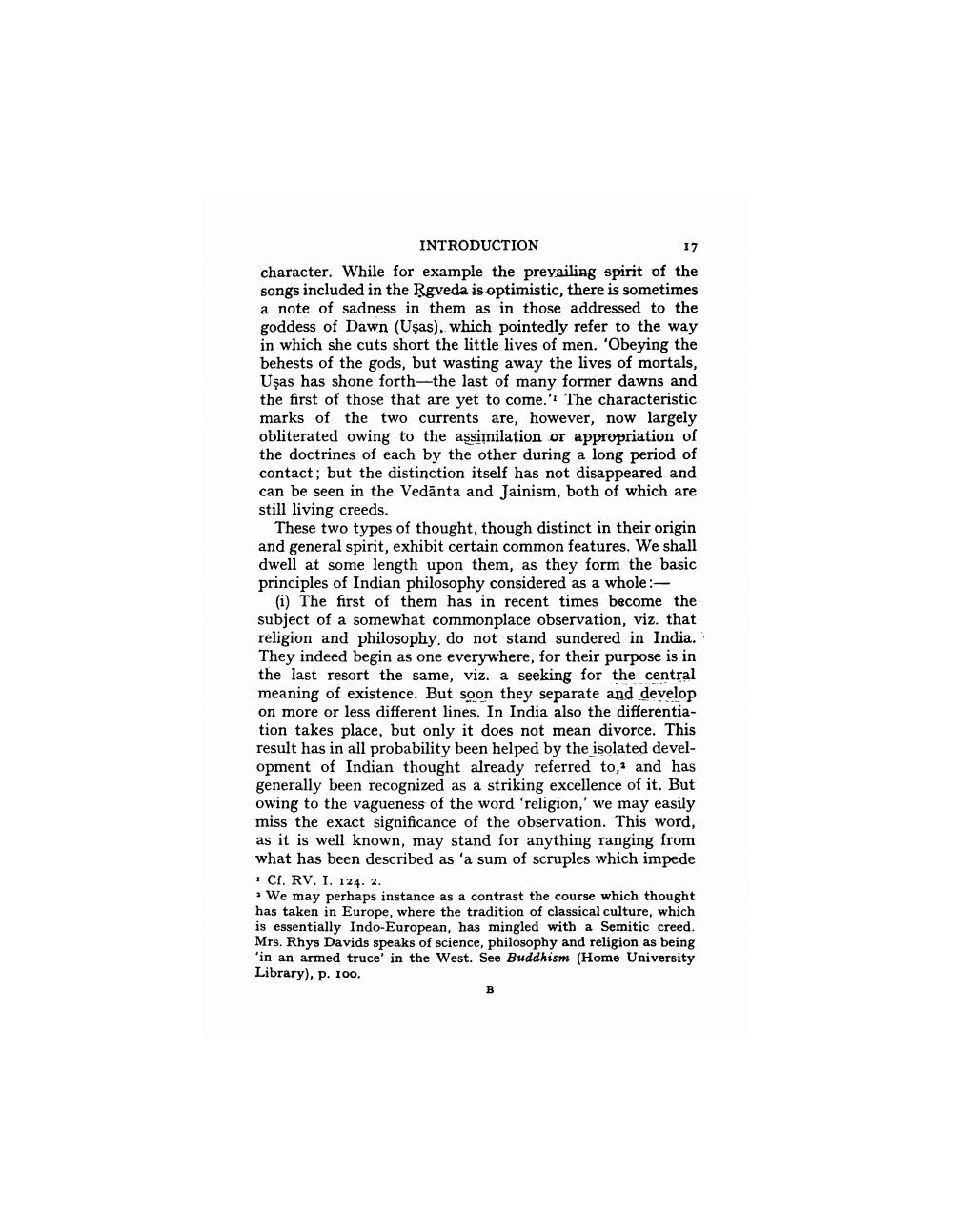________________
INTRODUCTION
17
character. While for example the prevailing spirit of the songs included in the Rgveda is optimistic, there is sometimes a note of sadness in them as in those addressed to the goddess of Dawn (Usas), which pointedly refer to the way in which she cuts short the little lives of men. 'Obeying the behests of the gods, but wasting away the lives of mortals, Usas has shone forth-the last of many former dawns and the first of those that are yet to come.' The characteristic marks of the two currents are, however, now largely obliterated owing to the assimilation or appropriation of the doctrines of each by the other during a long period of contact; but the distinction itself has not disappeared and can be seen in the Vedanta and Jainism, both of which are still living creeds.
These two types of thought, though distinct in their origin and general spirit, exhibit certain common features. We shall dwell at some length upon them, as they form the basic principles of Indian philosophy considered as a whole:
(i) The first of them has in recent times become the subject of a somewhat commonplace observation, viz. that religion and philosophy, do not stand sundered in India. They indeed begin as one everywhere, for their purpose is in the last resort the same, viz. a seeking for the central meaning of existence. But soon they separate and develop on more or less different lines. In India also the differentiation takes place, but only it does not mean divorce. This result has in all probability been helped by the isolated development of Indian thought already referred to, and has generally been recognized as a striking excellence of it. But owing to the vagueness of the word 'religion,' we may easily miss the exact significance of the observation. This word, as it is well known, may stand for anything ranging from what has been described as 'a sum of scruples which impede 1 Cf. RV. I. 124. 2.
We may perhaps instance as a contrast the course which thought has taken in Europe, where the tradition of classical culture, which is essentially Indo-European, has mingled with a Semitic creed. Mrs. Rhys Davids speaks of science, philosophy and religion as being 'in an armed truce' in the West. See Buddhism (Home University Library), p. 100.
B




